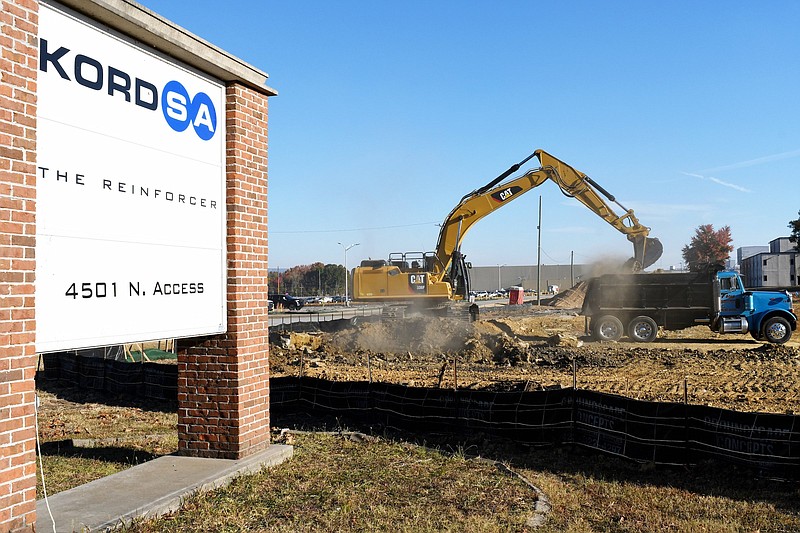Better scrutinizing the need for sometimes controversial special tax districts to spur growth in Chattanooga and boosting oversight of them were ideas raised Monday at a hearing about the incentives.
"We need them in our toolbox, but I think we need to be careful," said Helen Burns Sharp, founder of the public interest advocacy group Accountability for Taxpayer Money.
Sharp told the city's Industrial Development Board that devices such as tax-increment financing and payment-in-lieu-of-tax agreements to spur development aren't inherently bad.
"The sky's not falling," she said to the panel that's eyeing updated policies and procedures.
But she said that in the 2022 tax year, existing agreements meant that about $26 million didn't go into city and Hamilton County general funds for services such as fire, police, parks, libraries, workforce development and affordable housing.
Joseph Paden, who's working with the nonprofit community group Chattanooga in Action for Love, Equality and Benevolence, or CALEB, told the panel he's seeking more clarity in an updated tax agreement policy. The city's existing policy was approved in 2015.
Paden said it's "important in how we determine where the city's money and investment is going and how it affects our future."
"We're looking for good oversight," he said.
Development Board Chairman Jimmy Rodgers said that while the City Council already endorsed some policy changes earlier this fall, the board also has a role.
"The city has given their approval, but we have discretion whether we want to agree with it or propose amendments," he said.
Rodgers cited the makeup of a five-member committee that reviews tax-increment financing applications, which now includes two appointments by the mayor, two by the City Council and one representing the Chattanooga Area Chamber of Commerce.
"Limiting it to this five may not be what we want to do," he said.
Rodgers said there's no mention of including people from the development, labor or public interest group sectors.
Jermaine Freeman, senior adviser for economic opportunity for Chattanooga Mayor Tim Kelly, said any interested parties could communicate with the mayor or City Council related to an application.
"They could make sure those interested parties are serving on the ... committee," he said.
Sharp, who provided a map of locations where such tax agreements are already in force in Hamilton County, said it's key to recognize that the tax burden to support general fund services shifts to residential taxpayers and small businesses while the agreements are effective.
She called on the terms of such devices to be "as short as possible ... and as tight as possible."
Sharp said she thought it would be helpful to see a highlighted version of proposed changes in the new policy, and she sought another month for interested parties to review them. The Industrial Development Board decided to continue the public hearing until its January meeting.
Among revisions approved in a new policy is increasing the application fee for tax-increment financing from $1,500 to $8,000. Also included is raising the annual administrative fee from 0.25% of the tax increment revenue to 2.5%, which Freeman said would help ensure the policy accounts for staff time and resources needed to manage a project.
In addition, a new policy calls for increasing coordination with county government and strengthening a "but-for requirement" related to proposed tax-increment financing projects, he said. Freeman said there's discussion about including affordable housing in a new city policy.
Through tax-increment financing, such special districts are designed to spur development in areas often before economic activity would typically take place.
Earlier this year, the city and county approved creation of a special tax district around the planned new $79.4 million Chattanooga Lookouts multiuse stadium on old foundry land in the South Broad District after months of sometimes heated discussion.
Most of the new property tax revenue from the special district, Lookouts' lease payments, sales taxes, parking revenues and $1.4 million each from the city and county will pay for debt service on 30-year bonds to be issued for the project, officials have said.
Also this year, developer Rise Partners won special tax financing from the city and county to help build sewers, roads and stormwater infrastructure for a new industrial park around the former DuPont plant site in Hixson. Under the arrangement, the developers will spend money related to a project up front, then will be paid back with interest over a period out of additional tax revenues generated by the development.
This fall, Chattanooga officials and developers marked the opening of a new $16 million road up Aetna Mountain, where about 1,200 homes are planned over the next decade. The new boulevard-style road, which has a median and two lanes with 17 feet of pavement apiece, was partly funded with the help of a $9 million tax-increment financing agreement with the city and county.
This summer, the Chattanooga Housing Authority agreed to cooperate with the city and developers of The Bend mixed-use project in pursuing a special tax district to help revitalize downtown's Westside. That potential initiative is still under discussion, officials have said.
Contact Mike Pare at mpare@timesfreepress.com or 423-757-6318. Follow him on Twitter @MikePareTFP.
